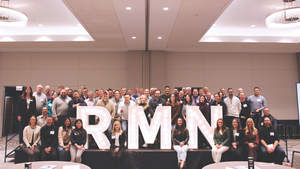Bi-Lo, Bashas’ Find Vendors Via Sourcing Firms
As a participant in the TopSource not-for-resale procurement group, Bi-Lo, Mauldin, S.C., has taken advantage of its ability to aggregate the spending power of multiple retailers to reap cost-saving deals on a wide spectrum of products and services.
January 17, 2012
As a participant in the TopSource not-for-resale procurement group, Bi-Lo, Mauldin, S.C., has taken advantage of its ability to aggregate the spending power of multiple retailers to reap cost-saving deals on a wide spectrum of products and services.
But for some services, such as floor care, the aggregation model doesn’t work well, because the vendors are local or because of the singular requirements of each retailer. So Bi-Lo decided to spearhead a member-specific sourcing program that last year became the latest procurement service offered by TopSource, Braintree, Mass., a division of the Topco buying cooperative.
“If you try to approach floor care through the TopSource consortium, you find that everyone’s specs are very different,” said Billy Watkins, Bi-Lo’s manager, store services, procurement, ONR (other net revenues) and sustainability. “How you get clean floors — the frequency of cleaning, the expectations around equipment and [labor] hours — are all unique characteristics. It would be a nightmare to manage an initiative like this with two or three [retail] members with different specs.”
In 2009, Bi-Lo pursued TopSource’s first member-specific, not-for-resale procurement initiative to meet its floor-care needs. Last year the member-specific program flourished; for example, its hired services category, which includes floor care, snow plowing and landscaping, saved about $7.5 million for 12 TopSource members, said Adam Binder, TopSource’s senior sourcing manager, hired services. Other member-specific categories include unloading services, transportation and circular distribution.
The member-specific program is the latest example of TopSource’s effort to accommodate the needs of its Topco members’ sourcing needs. Another example is its QuickSource program, which allows individual retailers to take advantage of procurement contracts previously struck via aggregated buys.
But why couldn’t Bi-Lo handle a solitary buying exercise on its own? One reason is that Bi-Lo has a “lean procurement department,” consisting of just himself and three others, said Watkins. “The amount of communication could be overwhelming for our staff. We partner with TopSource because they do the data collection for us and answer questions, negotiate and compile the bids. We look at the bid results by store location and in our scenario, low bid wins.” The process takes about four months.
Bi-Lo’s original floor-care bidding attracted more than 20 companies, and nine were ultimately selected to handle the chain’s 207 stores. (Bi-Lo recently bid to expanded its size considerably with the proposed acquisition of Winn-Dixie Stores.) The chain saved about 14% compared to what it had previously spent on floor-care services, said Watkins.
This year, Bi-Lo is gearing up for a new bidding process for floor care and window washing through the member-specific program. Organic composting, a service governed by varying state regulations, is also being handled as a member-specific initiative.
Although TopSource often employs reverse auctions to select not-for-resale product vendors, including member-specific vendors, the auctions were not used by Bi-Lo’s floor-care vendors. Just as the variability of needs by chain precluded aggregated sourcing, the variability of each store’s floor-care needs argued against using a web-based reverse auction, which requires consistent specification across locations, said Watkins.
“Unlike can liners, plastic bags or cardboard recycling, it’s hard to say they would be bidding on the same thing with floor care,” he said. “We have over 100 formats with different foot traffic, some locations on the coast and some seasonal stores.”
Cutting costs is the main objective of outside procurement services, but attention is paid to vendor quality as well. “TopSource manages the relationship with vendors and makes sure their performance is meeting expectations,” said Watkins. “If there’s a problem with quality, we get TopSource involved; they have quite a bit of influence.” Vendors’ overall performance is measured on scorecards.
Bi-Lo also looks upon TopSource as a consultant that can recommend best practices employed by other members. TopSource can also leverage its knowledge of prices and specs to help individual retailers in the member-specific program, said Binder.
As a member of Topco/TopSource, Bi-Lo pays an annual fee but also receives an annual dividend.
Bashas' Saves 13%
In addition to TopSource, a number of food retailers employ Phoenix-based Intesource, another third-party not-for-sale procurement firm, which relies on reverse auctions for most of its procurement activities. Intesource’s buying process generally services the requirements of individual retailers rather than an aggregation of retailers, though it does sometimes bring together multiple retailers for sourcing events, said Len Kaplan, vice president of sales for Intesource.
Bashas’, the 132-store retailer based in Chandler, Ariz., is a member of TopSource but uses Intesource for much of its not-for-resale procurement. Like Bi-Lo’s Watkins, Tony Rinella, purchasing contractor for Bashas’, said that services like floor care and pest control pose the greatest challenges in not-for-resale procurement because their specifications vary among stores. “Our specs for floor care had to be different because we’re in different climates in Arizona,” he said, adding that the chain uses two to three floor-care vendors currently.
Unlike Bi-Lo, Bashas’ employs a reverse auction process to select its floor-care and pest-control vendors. “If we have different requirements for different stores, we can spell that out,” said Rinella. “You have to be clear. If questions arise, they can contact me directly before the auction.”
In the case of pest control, a new buyer’s lack of knowledge prompted Bashas’ to use Intesource to collect information from suppliers on their individual service offerings prior to the auction. Even after being selected, service vendors may have to be monitored to ensure compliance, noted Rinella. Intesource has compiled a database of pricing activity as well as performance characteristics for 20,000 vendors, noted Kaplan.
Other not-for-resale items procured through Intesource for Bashas’ include meat trays, gloves, refrigerant and fire inspections. Bashas’ also uses e-sourcing for some for-resale items, such as generic drugs, pet supplies, cups and plates. The number of bidders in a reverse auction ranges from two to 12 and the average savings is 13%, said Rinella, adding that Bashas’ has an annual contract for an unlimited number of e-sourcing events. “There are events that pay for the whole year,” he said.
Rinella pointed out that Bashas’ doesn’t always select the lowest bidder in a reverse auction. Sometimes the three lowest are chosen and asked to provide product samples or service demos, which are vetted before a final selection is made.
Sometimes incumbent vendors are chosen even if they are not offering the lowest price as long as they are close. Incumbent vendors are not fans of this process, acknowledged Rinella.
However, said Kaplan, Intesource “takes great care and expense in preparing suppliers and training them for sourcing events.”
About the Author
You May Also Like






